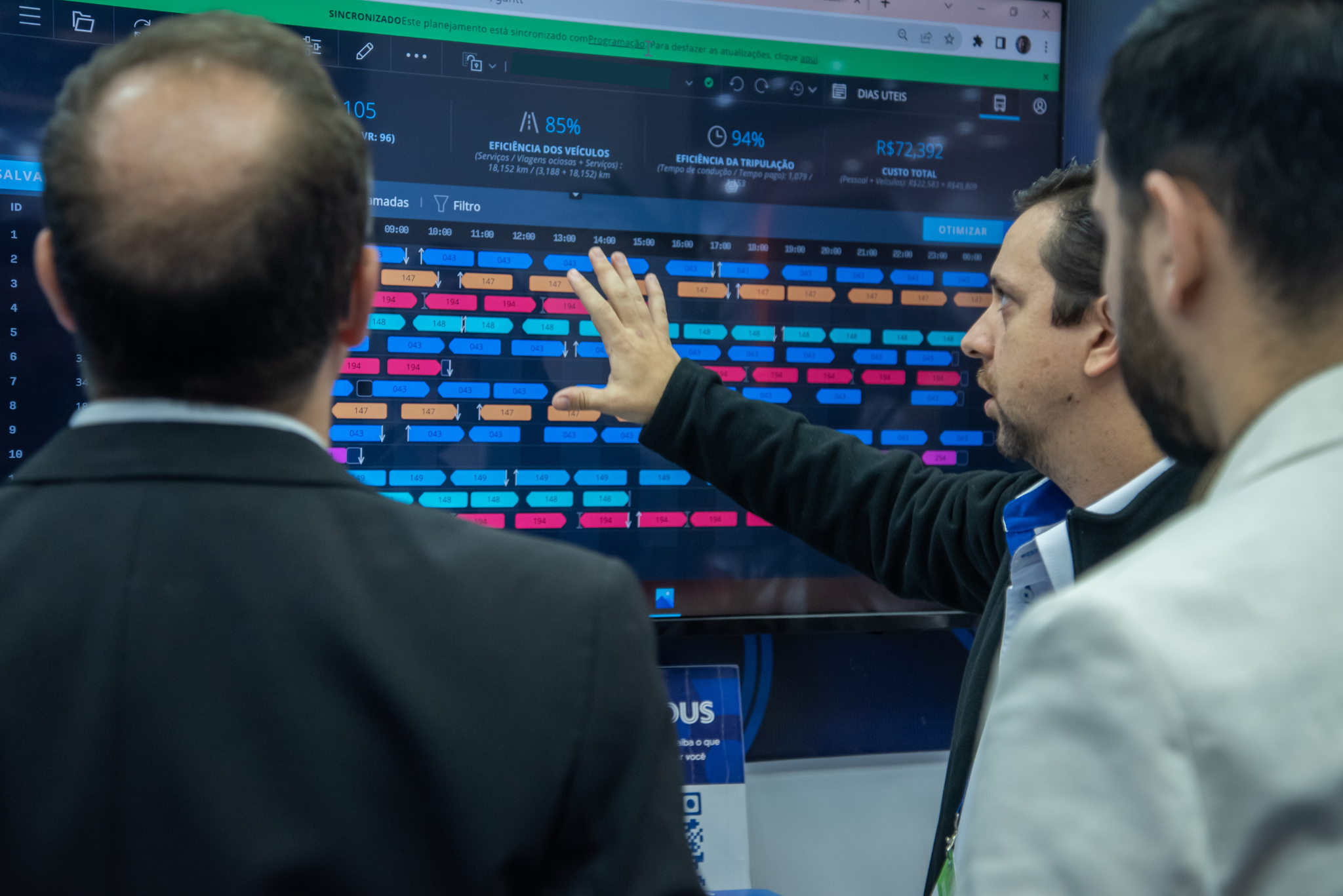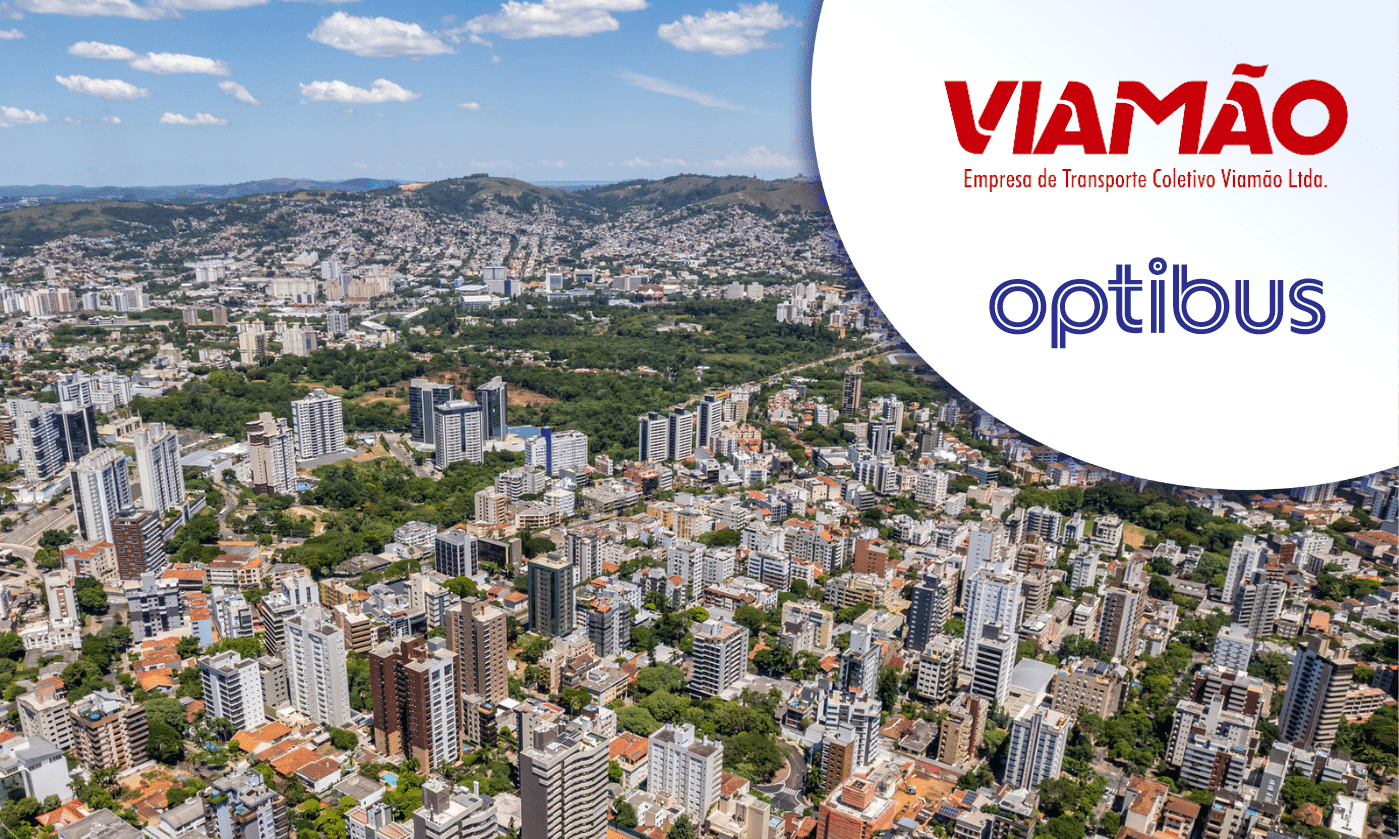The Bus Rapid Transit (BRT) system for the city of Sorocaba, in the state of São Paulo, Brazil, is the latest public transportation network to implement Optibus’ software platform for planning and scheduling.
Sorocaba is one of the main cities and economic centers in the state of São Paulo. With a population of 700,000, the city is home to many universities and industries. The city’s BRT system is integral for connecting about 1.6 million people each month between their homes and these key destinations for education and employment.
Bringing the latest innovations in transportation planning technology to BRT Sorocaba will improve services for 1.6 million monthly passengers.
BRT Sorocaba, the operator of the BRT system, is a consortium formed by two of the largest and most important operators in the state of São Paulo: MobiBrasil and CS Brasil. Together, they operate 16 lines of BRT services across two exclusive corridors, the Itavuvu and Ipanema corridors, which cover 70 kilometers in the North, South, Center and East zones of Sorocaba, as well as the Vitória Régia and São Bento terminals. A third and final corridor, the West Corridor, is scheduled for completion in 2023.
Rather than rely on outdated technologies or manual processes to integrate these changes into their network, BRT Sorocaba began proactively seeking automation and optimization solutions to help their operation seamlessly update their network. Using Optibus’ software, BRT Sorocaba will apply the latest innovations in optimization algorithms, cloud computing, and artificial intelligence to their work, automating tedious and time consuming tasks and making it simpler and faster for employees to make network adjustments.

Optibus pre-sales engineer Pedro Martins demos the Optibus Planning product at the Lat.Bus conference in Brazil
Planners and schedulers will also be able to deploy services with more confidence in their efficiency and impact on passengers. The software’s user-friendly interface highlights all the key performance indicators (KPIs) and data needed for all teams, from operational to commercial, to predict performance and finances at all stages of operation. Optibus’ Rapid Scenario Creation, which enables platform users to quickly create different scenarios based on KPIs, will also give the team the power to experiment with different conditions, such as route and crew scheduling, trip frequency, start and end times for lines, and more, analyze the results, and make the best decision to meet the needs of all stakeholders.
For Manoel Ferreira, director of operations at BRT Sorocaba, rolling out Optibus’ software solution reinforces the essence of BRT Sorocaba as a highly innovative project.
“Applying artificial intelligence to bus operations will enhance the quality of our services and produce daily improvements for the people that use public transportation. We will have decisions driven by data and actions tailored to each need of the operation. We are working with state-of-the-art technology from Optibus, a unicorn startup, and this motivates us even more to improve the operation, which is considered a reference in mobility for medium-sized cities,” Manoel pointed out.
Optibus’ software-as-a-service (SaaS) platform is used in more than 2,000 cities around the world. In Brazil, the solution is already used across the states of São Paulo, Rio de Janeiro, Rio Grande do Sul, Minas Gerais, Paraná, Pernambuco and the Distrito Federal. Recently, Optibus was also selected as the planning and scheduling software for the BRT in Rio de Janeiro. To provide on-the-ground support to clients in Brazil, Optibus has a team of more than thirty technology and transportation experts in the country, with hundreds more working around the world.
The City Hall of Sorocaba, one of the main cities and economic centers in the state of São Paulo, with a population of 700,000.
According to André Vieira, regional director of Brazil at Optibus, the implementation of Optibus’ software in Sorocaba will be a model in how to deliver cost effective and efficient public transportation operations.
“We carried out a pilot with BRT Sorocaba and identified that the software complied with all the operating rules and was capable of providing BRT Sorocaba’s team with the necessary work processes and knowledge. This supports optimized operational planning and helps them to deal confidently and quickly with current and future operational challenges,” said André.
“We've always had a wealth of data about our operation. Now, we've raised the bar even further. We will be able to design different types of rules and scenarios to address whatever challenge may arise. All this will improve the quality of services and the passenger experience,” concluded Ferreira.
“We want to make advanced technologies more accessible and applicable to operations of different sizes. We are excited to make a positive impact and to contribute to improving the quality of public transportation services in the city of Sorocaba,” concluded André Vieira.

%20(2).png)



.png)

%20(1)-png.png)